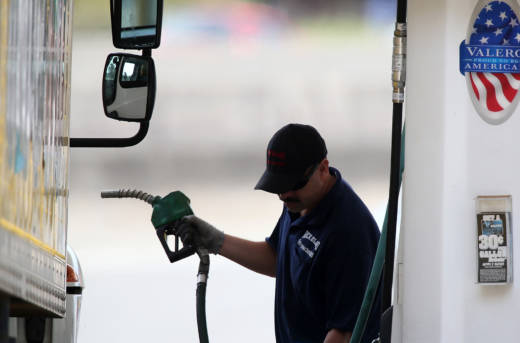“Any two-thirds vote is difficult,” said Sen. Bob Wieckowski (D-Fremont), who chairs the Senate Environmental Quality Committee. “With cap and trade, since 25 percent of money goes to disadvantaged communities, it’s a little lighter lift versus transportation package. That said, it’s still two-thirds.”
Supporters of cap and trade are seeking a supermajority vote this year to affirm the program’s legal standing and eliminate doubts that have reduced participation in the state’s carbon market, which has allowed companies to trade permits at auction since 2012.
The original law, AB 32, has a 2020 deadline for meeting its target of reducing greenhouse gas emissions to 1990 levels, and that has opened questions as to whether it can operate past that date. Critics say that the law is a an illegal tax because it passed with a simple majority vote. A two-thirds vote to extend the program would resolve both questions.
The court also settled the tax point, although there are other potential legal challenges ahead.
Legislators are still discussing whether to extend AB 32 as it exists or to shape an entirely new bill, possibly with an emphasis on environmental justice issues. There are varying versions of what a new or rejiggered cap-and-trade program might look like -- continuing the carbon auctions or converting to a carbon tax. Those developments are open-ended.
But if the program is extended in its current form, the price of allowances could greatly increase, according to a nonpartisan analysis. Depending on allowance prices, the cost of gas could rise from 15 to 73 cents per gallon by 2031, according to the Legislative Analyst’s Office.
Legislators are understandably sensitive to a dramatic hike in gasoline prices, a core pocketbook issue for voters.
Sen. Ted Gaines (R-El Dorado), who voted against the transportation bill, said permanent gas taxes hurt the most vulnerable.
“There seems to be some confusion in the Legislature about the war on poverty,” Gaines said in a statement. “We should be fighting to end it, not create it. But with this new gas tax we will be serving up poverty by the gallon to millions of families and businesses around the state.”
In any event, cap and trade lived to fight another day, thanks to a 2-1 ruling from the 3rd District Court of Appeal in Sacramento, which agreed with the state Air Resources Board that it has the authority to regulate polluters. The years-long case had clouded the future of cap and trade, with sluggish interest in the state’s auctions. The February quarterly allowance auction was another bust, with just 16.5 percent of the emission allowances sold. The next auction is in May.
Analysts say that the future for cap and trade will not be truly assured until it is enshrined in law and not subject to continual legal challenges. Gov. Jerry Brown has asked the Legislature to reauthorize the program with a two-thirds vote, but even the Democrat-heavy statehouse is not committing to anything. Yet.
CALmatters.org is a nonprofit, nonpartisan news venture explaining California policies and politics.

